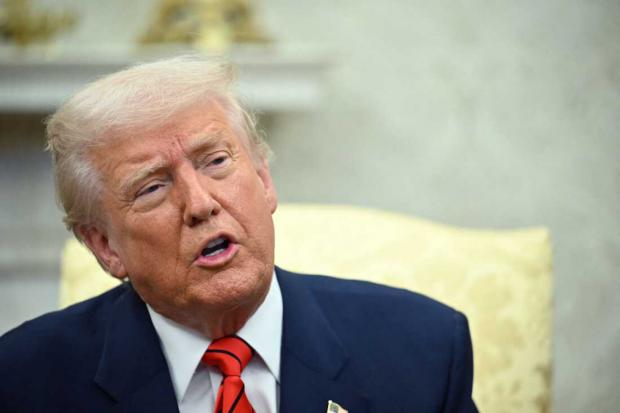
Breaking News
 Inside Archer's bold plans for air taxi rides across NYC, SF, and LA
Inside Archer's bold plans for air taxi rides across NYC, SF, and LA
 The Best Argument Against Veganism | Joel Salatin | EP 539
The Best Argument Against Veganism | Joel Salatin | EP 539
 NY Times Bombshell: 'Trump Called Off Planned Iran Strike.'
NY Times Bombshell: 'Trump Called Off Planned Iran Strike.'
 Human Trafficking Too? Biden Admin Flagged Deported El Salvadoran As 'Suspect Alien'
Human Trafficking Too? Biden Admin Flagged Deported El Salvadoran As 'Suspect Alien'
Top Tech News
 Scientists reach pivotal breakthrough in quest for limitless energy:
Scientists reach pivotal breakthrough in quest for limitless energy:
 Kawasaki CORLEO Walks Like a Robot, Rides Like a Bike!
Kawasaki CORLEO Walks Like a Robot, Rides Like a Bike!
 World's Smallest Pacemaker is Made for Newborns, Activated by Light, and Requires No Surgery
World's Smallest Pacemaker is Made for Newborns, Activated by Light, and Requires No Surgery
 Barrel-rotor flying car prototype begins flight testing
Barrel-rotor flying car prototype begins flight testing
 Coin-sized nuclear 3V battery with 50-year lifespan enters mass production
Coin-sized nuclear 3V battery with 50-year lifespan enters mass production
 BREAKTHROUGH Testing Soon for Starship's Point-to-Point Flights: The Future of Transportation
BREAKTHROUGH Testing Soon for Starship's Point-to-Point Flights: The Future of Transportation
 Molten salt test loop to advance next-gen nuclear reactors
Molten salt test loop to advance next-gen nuclear reactors
 Quantum Teleportation Achieved Over Internet For The First Time
Quantum Teleportation Achieved Over Internet For The First Time
 Watch the Jetson Personal Air Vehicle take flight, then order your own
Watch the Jetson Personal Air Vehicle take flight, then order your own
 Microneedles extract harmful cells, deliver drugs into chronic wounds
Microneedles extract harmful cells, deliver drugs into chronic wounds
Trump's Market Whiplash Continues

The Trump administration recognized the danger and, just fifteen minutes after I had published my post, pulled back (archived):
The economic turmoil, particularly a rapid rise in government bond yields, caused Mr. Trump to blink on Wednesday afternoon and pause his "reciprocal" tariffs for most countries for the next 90 days, according to four people with direct knowledge of the president's decision.
Asked to explain the decision, Mr. Trump told reporters: "Well, I thought that people were jumping a little bit out of line. They were getting yippy, you know, they were getting a little bit yippy, a little bit afraid."
Behind the scenes, senior members of Mr. Trump's team had feared a financial panic that could spiral out of control and potentially devastate the economy. Treasury Secretary Scott Bessent and others on the president's team, including Vice President JD Vance, had been pushing for a more structured approach to the trade conflict that would focus on isolating China as the worst actor while still sending a broader message that Mr. Trump was serious.
This does not mean that the trouble has ended.
Who is going to invest, into what, while any day, at any moment, the most basic economic conditions may change in completely unpredictable directions:
Asked on Wednesday how he would decide on any further exemptions, Mr. Trump said: "Instinctively, more than anything else. I mean, you almost can't take a pencil to paper. It's really more of an instinct, I think, than anything else."
By admitting that Trump acknowledges that he is the real problem.
How can I decide to invest in a new car when by delivery date the tariffs and interests involved might have changed in unforeseeable directions? On what basis can I trust Trump's instincts? I can't and won't. The same will hold for much bigger investment decisions.
For once the Washington Post editorial is getting it right (archived):
The bond markets forced Trump's hand. By moving their money out of dollars and selling U.S. Treasury bonds, investors told Trump what his closest advisers would not about the perils of starting trade wars with all other countries at once. Trillions in value were wiped out in equity markets, and the financial system blinked red with indicators of contagion.
Finally, bond yields began to forecast calamity — especially the alarming sell-off of 10-year Treasurys. In times of panic, these bonds usually attract investors. Their failure to do so this time reflected declining confidence that the U.S. government would repay its debts.



